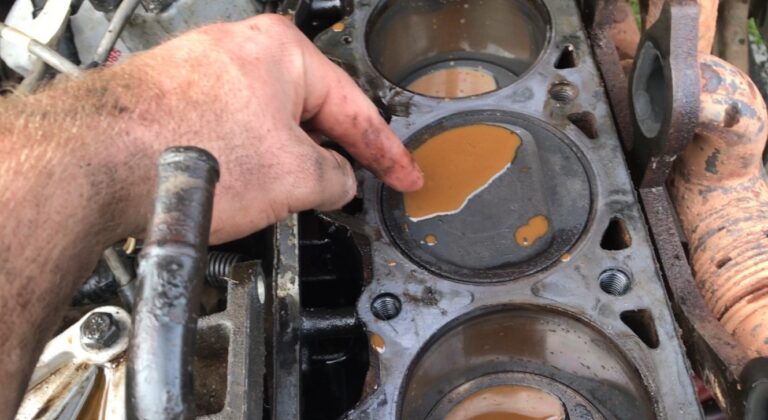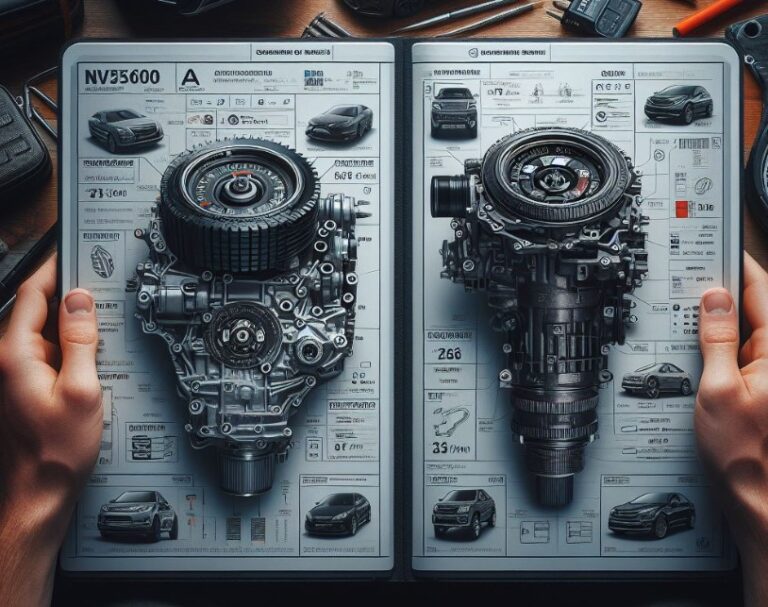Can Turbo Bark Cause Problems? Quick Answer
Are you looking for Can Turbo Bark Cause Problems? Turbo bark is a phenomenon often discussed among car enthusiasts and mechanics. It refers to a specific sound produced by a turbocharged engine, typically when the throttle is suddenly closed after being wide open. This article delves into the intricacies of turbo bark, exploring whether it can lead to problems in a vehicle.
Key Takeaways
- Turbo bark is a distinct sound from a turbocharged engine.
- It occurs when the throttle closes suddenly after being open.
- This sound raises concerns about potential damage to the turbocharger.
- Understanding the mechanics behind turbo bark is crucial for proper maintenance.
- Preventative measures can mitigate any negative effects.
Can Turbo Bark Cause Problems?
Yes, turbo bark can cause problems. It occurs when the throttle is suddenly closed after being open, causing a rapid change in air pressure within the turbocharger system.
This can strain the turbocharger and its components, potentially leading to wear or damage over time. Regular maintenance and proper tuning of your vehicle can help mitigate these risks.

Understanding Turbo Bark
Turbo bark is a unique sound that occurs in turbocharged engines. It’s characterized by a loud, abrupt noise resembling a bark. This happens when the throttle is quickly closed after being wide open, causing a rapid change in air pressure within the turbocharger system.
Mechanics Behind the Sound
The sound of turbo bark originates from the turbocharger. When the throttle closes suddenly, the compressed air from the turbocharger has nowhere to go. This trapped air then oscillates within the system, creating a barking sound. It’s a natural response of the turbo system to sudden changes in air pressure.
Is Turbo Bark Harmful?
The primary concern is whether turbo bark can damage the turbocharger. In normal circumstances, occasional turbo bark is not harmful. However, frequent or severe occurrences might indicate underlying issues that could potentially harm the turbocharger or related components.
Potential Risks Associated with Turbo Bark
Turbo bark, while often harmless, can pose risks if it occurs frequently or intensely. It’s crucial to understand these risks to maintain the health of your vehicle’s turbocharger.
Turbocharger Strain
Repeated or intense turbo bark can strain the turbocharger. The oscillating air can cause wear and tear on the turbo’s components, potentially leading to premature failure.
Impact on Performance
Frequent turbo barking can also impact the vehicle’s performance. It may indicate a mismatch between the turbocharger and the engine, or issues with the vehicle’s tuning, which can affect overall performance.
Preventative Measures and Solutions
Taking preventative measures can reduce the likelihood of turbo bark causing problems. Regular maintenance and tuning adjustments can help.

Proper Tuning and Maintenance
Regular maintenance and proper tuning of the turbocharged engine can minimize the occurrence of turbo bark. Ensuring that all components are in good condition and that the engine is tuned correctly can help prevent this issue.
Upgraded Components
Upgrading certain components, like the blow-off valve, can also mitigate the effects of turbo bark. A high-quality blow-off valve can effectively manage the excess air pressure, reducing the strain on the turbocharger.
Turbo Bark in Different Vehicle Models
The occurrence and impact of turbo bark can vary between different vehicle models. Factors such as engine size, turbocharger type, and vehicle design play a role.
Variances in Occurrence
Some vehicle models may experience turbo bark more frequently due to their specific design and turbocharger setup. It’s essential to understand your vehicle’s characteristics to manage this phenomenon effectively.
Model-Specific Solutions
Solutions to mitigate turbo bark can vary depending on the vehicle model. Consulting with a professional or researching model-specific forums can provide insights into the best approaches for your particular car.
Understanding the Signs of Turbo Bark
Recognizing the signs of turbo bark is crucial for timely intervention. Knowing what to listen for can help you identify the issue early.
Auditory Indicators
The most apparent sign of turbo bark is the distinctive barking sound. It’s a loud, sharp noise that occurs when the throttle is suddenly closed after being open.
Performance Changes
Apart from the sound, changes in the vehicle’s performance can also indicate turbo bark. These may include reduced acceleration or a feeling of sluggishness in the engine’s response.
Expert Opinions on Turbo Bark
Consulting experts in the field can provide valuable insights into the nature of turbo bark and its potential impact on your vehicle.

Mechanic’s Perspective
A professional mechanic can offer an informed opinion on the seriousness of turbo bark in your specific vehicle. They can also suggest appropriate solutions and preventative measures.
Industry Standards and Research
Research and industry standards regarding turbo bark are continually evolving. Staying informed about the latest developments can help you manage this phenomenon effectively.
How Do I Know If My Turbo Is Bad On My Cummins?
Identifying a bad turbo in a Cummins engine involves looking for several key symptoms. The most common indicators include excessive exhaust smoke, a noticeable decrease in power, abnormal noises from the turbo area, and increased oil consumption.
Specifically, for Cummins engines, you might also notice issues like the engine struggling to maintain high RPMs or a whining noise indicating bearing wear in the turbo.
If you observe any of these signs, it’s important to get your vehicle checked by a professional. The turbocharger is a critical component, and its malfunction can significantly impact the engine’s performance and longevity.
How Do You Test If Your Turbo Is Working?
To test if your turbo is working properly, start by checking for any obvious signs of physical damage like cracks or leaks in the turbo housing. Listen for unusual noises when the engine is running, indicating issues with the turbo’s internal components.

Another method is to monitor the boost pressure using a boost gauge; any deviations from the normal range could suggest problems.
Additionally, checking for excessive smoke from the exhaust or conducting a road test to assess the engine’s power and acceleration can provide insights into the turbo’s condition. Always remember, for detailed diagnostics, consulting with a professional mechanic is advisable.
How Do I Know If My 5.9 Cummins Turbo Is Bad?
Determining if the turbo in a 5.9 Cummins is bad involves several steps. Listen for unusual sounds like whining or siren-like noises, which could indicate turbo-bearing issues.
Observe the exhaust; black or blue smoke can be a sign of turbo failure. Check for oil leaks around the turbo and look for play in the turbo shaft by wiggling it gently (engine off).
A significant amount of play could indicate wear. Poor engine performance, like lackluster acceleration or decreased fuel efficiency, can also be symptoms of a failing turbo. If you suspect your turbo is bad, a professional assessment is recommended to avoid further engine damage.
How Bad Is Turbo Bark And How To Stop It?
Turbo bark, particularly in high-performance engines, can be a sign of stress on the turbocharger system. While occasional turbo bark is not typically harmful, frequent or intense occurrences can indicate issues that may lead to turbo damage over time.

To prevent turbo bark, ensure your vehicle’s engine is correctly tuned and that the turbocharger system components, including the blow-off valve and wastegate, are functioning properly. Upgrading these components can also help.
Properly sizing the turbo to match the engine’s airflow requirements is essential to minimize turbo bark. Regular maintenance and addressing any signs of turbo issues promptly can greatly reduce the risk of turbo bark.
Conclusion
Turbo bark is a complex phenomenon that can have various implications for your vehicle. While it’s usually not a cause for concern, understanding and managing it is essential for maintaining the health and performance of your turbocharged engine.
Regular maintenance, proper tuning, and occasionally upgrading components can significantly reduce the risks associated with turbo bark. Remember, every vehicle is different, so tailoring your approach to your specific model is key.
By staying informed and proactive, you can ensure that turbo bark remains a harmless quirk of your turbocharged engine, rather than a sign of underlying issues.
Frequently Asked Questions
How Does Engine Tuning Affect Turbo Bark?
Proper engine tuning is crucial in managing turbo bark. Incorrect tuning can lead to imbalances in the turbocharger system, resulting in more frequent occurrences of turbo bark. Regular tuning adjustments can ensure the engine operates efficiently and reduce the likelihood of turbo bark.
Does Turbo Bark Indicate a Need for Engine Repair?
Not always. While turbo bark can sometimes signal issues with the turbocharger system, it’s not always indicative of a need for immediate repair. Evaluation by a professional can determine if any repair or adjustment is necessary.
What Should I Do If I Notice Turbo Bark in My Vehicle?
If you notice turbo bark in your vehicle, it’s advisable to consult with a professional mechanic. They can assess whether the turbo bark is a symptom of a more significant issue and recommend appropriate solutions or preventative measures.
Are Certain Cars More Prone to Turbo Bark?
Yes, the occurrence of turbo bark can vary between different vehicle models. Factors like engine size, turbocharger type, and overall vehicle design can influence how often and how intensely turbo bark occurs.

Welcome to the exhilarating world of Matt Rex, a professional car racer turned renowned vehicle enthusiast. Immerse yourself in his captivating blog as he shares heart-pounding adventures, expert reviews, and valuable insights on cars, trucks, jets, and more. Fuel your passion for speed and discover the beauty of vehicles through Matt’s engaging stories and meticulous expertise. Join the ever-growing community of enthusiasts who find inspiration and expert advice in Matt Rex’s blog—a digital hub where the thrill of speed meets the pursuit of knowledge.


![Can Humidity Cause Check Engine Light To Come On? [Answered]](https://www.turbochaos.com/wp-content/uploads/2023/11/Can-Humidity-Cause-Check-Engine-Light-To-Come-On-768x427.jpg)




